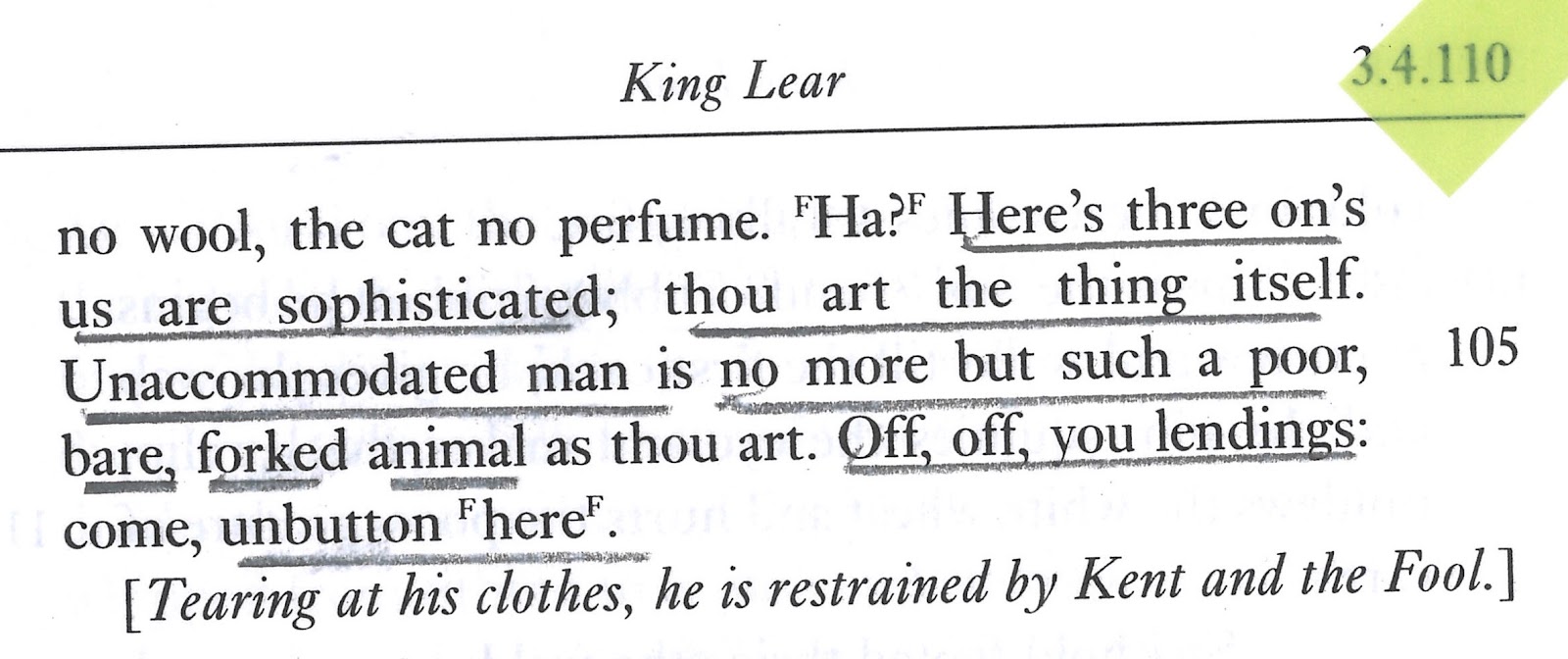Shakespeare, William. King Lear. Ed. Kenneth Muir. Arden Shakespeare. Second Series. London: Routledge, 1972.
Shakespeare, William. The Parallel King Lear: 1608-1623. Prepared by Michael Warren. Berkeley: University of California Press, 1989.
Shakespeare, William. The Riverside Shakespeare. 2nd ed. Gen. ed. G. Blakemore Evans. Boston: Houghton Mifflin, 1997.
In re-reading King Lear once more, I was working through Lear's speech on the heath when he has encountered Edgar, who is disguised as Poor Tom. And something struck me as odd . . . unusual . . . unfamiliar.
"Could it be a typo?" I thought. I then dismissed the thought. After all, this is the Arden edition. How many times had this text been viewed by how many people? "It's your overwrought imagination," I told myself, "combined with the work you're doing for your editing and proofreading class.
But then I looked again.
All right, I'll give away the spoiler. It was (and is) a typographical error! Before I walk you through the process I went through to confirm it as a typo, take a look at the image above or the image immediately below. Can you spot the error?
It's in the line "Here's three on's us [sic] are sophisticated." That "on's" is a contraction meaning "of us"—the extra "us" is merely superflux (that's a Shakespearean coinage from this very play). "Here's three of us us are sophisticated" doesn't make sense.
But we are dealing with multiple texts of King Lear. Perhaps this merely reflects a textual variant.
I grabbed a couple other modern editions to see what they did with the line—and whether they had any note about that seemingly-extra "us."
The Arden Section Series edition did not have it:
Neither did the Riverside:
I then took a quick gander at my parallel text edition (for which, q.v.), which compares Q1 and F of Lear.
I like the spacing Q1 provides: "her's three ons are so phisticated." It reminds me of the phrase "You think you're all that? You think you're so phisticated, don't you?"
The long and short of it is that it is a typo—a genuine rarity in an Arden edition. Since it occurs over a line break, it's easy to miss. I've read that speech multiple times myself and never noticed. In other words, I'm not finding fault—I'm just finding interest!








